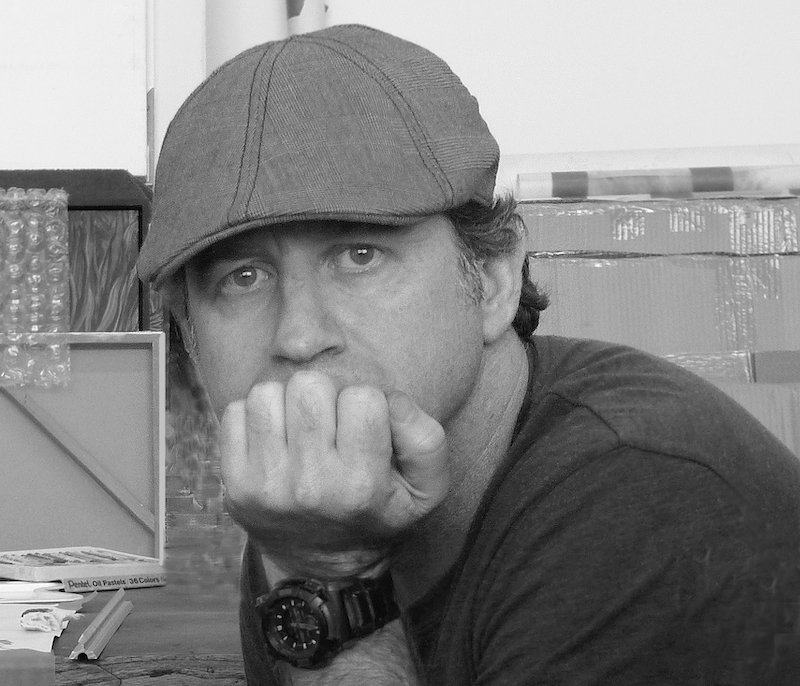Learning Patience (as fast as I can).
- Jerome Michael McLaughlin

- Jul 30, 2022
- 3 min read
I recently entered a daily event into my calendar that simply says: “Be patient.”

The word patient is derived from the mid-14th century French term pacient meaning "a suffering, injured, or sick person under medical treatment." The term pacient is also defined as “capable of enduring misfortune, suffering without complaint." Both draw directly from the Latin term patientem: "bearing, supporting, suffering, enduring, permitting".
I never consciously equated the existential term patience to that of a physical patient - someone in need of medical care. My mind had always maintained the words “patient” and “patience” in two separate and isolated realms. But the relationship is obvious and embarrassingly hard to miss. The concept of suffering is the root of both words.
Patience we are told, is a virtue, something to practice and cultivate. But why? Why would we willingly choose to subject ourselves to more suffering? Life is hard enough without heaping additional burden upon an already fragile psyche.
We humans are producers. We prefer action. Mortality demands it. We wish to witness things evolve from beginning to end. A certain profound satisfaction is derived from the finality of accomplishment, the witnessing of something reaching completion.
The catalyst is time. In particular, time as measure by our individual “time horizon”. If we focus on our immediate horizon, that which we can visibly see before us, we indulge in that which satisfies us now. Yet, if we push our vision of the horizon beyond the visible line in the distance, we realize that the delay of immediate gratification might result in something more rewarding and more valuable in the future, perhaps something unseen or unknown. Something mysterious and elusive lies beyond.
Patience + Time = Reward
If we take the time now and then, we might be astounded to see how much is accomplished over time when time itself seems to move so slowly. Our minds find it difficult to process the painfully slow movement of the second hand of the clock when contrasted against the incredible achievements that somehow occur across time. Seconds tick away but somehow things get done.
[Those held in captivity for long periods of time often say that it’s not the years but the seconds that are the most painful to endure].
Patience is paradoxical. The young have all the time in the world and thus should possess the luxury of infinite patience. However, they don’t yet possess the wisdom of experience to know what to be patient for. The old, being more consciously aware of their limited time, should be insufferably impatient. But these seasoned souls have learned to guide their aim toward future experiences they know to be of value and learn to patiently await them.
Patience requires being present. Not in every second, but within the conscious second itself. Being present is the ability to absorb the click of the second when we become aware of its existence. This is the second to draw back in the moment, breathe, smile, and accept the isolation of that instant without pushing it to be something else. It is what it is.
That particular moment is not responsible for anything other than existing as it is, a segment in the linear but finite process of life. Agitation sets in when we assign that moment a value measured by our own expectations – a projection of what that second should be or how it should be spent. This is where the stress of life originates – in the second hand of everyday existence. We know we only have so many clicks of the clock in which to achieve, accomplish, live, love, and thrive.
Patience means suffering through time. But suffering not for the sake of demonstrating physical or psychological endurance, but to witness the completion of change. Change requires time - change within one’s self, change within the world, change within those around us, and change within those we love.
True and lasting change cannot be hurried. Any idea, conclusion, alteration, or solution worthy of permanence must evolve on its own time. Nothing can be said or done to immediately expedite the process. No outside coercion or applied influence will produce the change that will ultimately endure. Permanent change takes hold when the necessary pieces within one’s self are thoroughly considered, aligned, and then locked in place, each part supporting the next to provide a solid foundation that remains secure in its own internal understanding.
As the wise one says,…”No, I’ll wait.”




Comments